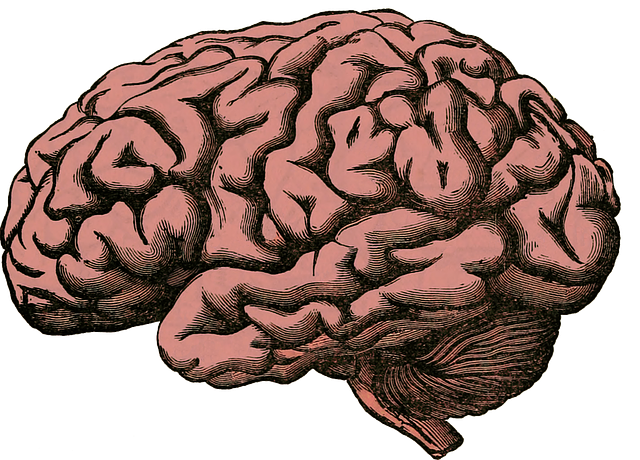Mental health professionals play a crucial role in managing complex client issues through effective risk assessment, adhering to Mind Over Matter Principles. This ensures personalized care and Self-Esteem Improvement, especially for those requiring Golden Chronic Pain Therapy (GCPT). GCPT presents unique challenges such as side effects, relapse risks, and emotional strain, which can be mitigated by integrating burnout prevention techniques and fostering open communication in a supportive environment. Continuous training, crisis intervention skills, and cultural sensitivity are key to effective risk management in mental healthcare, enhancing patient safety and outcomes, especially for individuals with chronic pain. Case studies help professionals devise strategies for positive GCPT outcomes through holistic approaches like Mind Over Matter principles, stress management, and tailored Mental Wellness Coaching Programs.
Mental health professionals often confront complex risks while treating patients, especially those with chronic pain. This article guides you through a comprehensive risk assessment framework tailored for mental health practitioners specializing in Golden Chronic Pain Therapy (GCPT). We explore critical risk identification strategies, focusing on unique challenges within GCPT. Further, we provide actionable management techniques and real-world case studies to equip professionals with the tools needed to navigate these risks effectively. By understanding and mitigating these risks, therapists can enhance patient outcomes and ensure safe, ethical practice in this specialized domain.
- Understanding Risk Assessment in Mental Health Practice
- Identifying Risks Specific to Chronic Pain Therapy
- Strategies for Effective Risk Management
- Case Studies: Navigating Risks in Golden Chronic Pain Therapy
Understanding Risk Assessment in Mental Health Practice

Mental health professionals are often on the front line when it comes to managing and treating complex client issues. Effective risk assessment is a cornerstone of their practice, enabling them to deliver safe and evidence-based care. It involves a systematic process of identifying, analyzing, and mitigating potential risks associated with a client’s mental health status, treatment plan, and overall well-being. By embracing the Mind Over Matter Principles, professionals can enhance their ability to assess and address these risks proactively.
This assessment is crucial in various scenarios, including managing clients with Golden Chronic Pain Therapy requirements. It ensures that treatments are tailored to individual needs while minimizing potential harm. Through comprehensive risk assessments, mental health practitioners can implement strategies to improve Self-Esteem Improvement, foster resilience, and promote positive outcomes for their clients.
Identifying Risks Specific to Chronic Pain Therapy

Identifying risks specific to chronic pain therapy is a critical component of risk management planning for mental health professionals engaging in this specialized field. The Golden Chronic Pain Therapy, while offering significant benefits, comes with unique challenges that can impact both the patient’s and therapist’s emotional well-being. Mental health professionals must be vigilant in assessing and addressing potential risks such as medication side effects, relapse concerns, and the emotional toll associated with managing chronic pain.
Effective risk management involves integrating burnout prevention techniques into daily practice. This includes setting clear boundaries, prioritizing self-care, and fostering a supportive environment that encourages open communication. By adopting these strategies, mental health professionals can enhance their ability to deliver high-quality care while mitigating the risks inherent in chronic pain therapy.
Strategies for Effective Risk Management

In the realm of mental health care, effective risk management is paramount to ensuring patient safety and fostering a supportive environment. Mental health professionals must adopt strategic approaches to navigate complex situations, especially when dealing with individuals experiencing chronic pain. Implementing Golden Chronic Pain Therapy principles can serve as a robust framework for managing risks associated with this condition. Such therapy emphasizes holistic treatment, considering physical, emotional, and social aspects, which are crucial in mitigating potential hazards and enhancing patient outcomes.
Cultural sensitivity in mental healthcare practice plays a pivotal role in risk assessment. By being attuned to diverse cultural beliefs and traditions, professionals can offer tailored interventions. Crisis intervention guidance, often integrated into comprehensive mental health awareness programs, equips practitioners with the tools to handle emergent situations effectively. Through continuous training and knowledge updates, mental health professionals can stay prepared to manage risks, ensuring a safe and culturally responsive care environment.
Case Studies: Navigating Risks in Golden Chronic Pain Therapy

In the realm of mental health professionals, case studies play a pivotal role in understanding and mitigating risks associated with specialized treatments. One such area of interest is Golden Chronic Pain Therapy (GCPT), which focuses on long-term management of chronic pain conditions. GCPT presents unique challenges due to its intricate nature; thus, meticulous risk assessment becomes paramount. These risks encompass not only potential adverse effects from therapeutic interventions but also the complex interplay between physical and mental health components in chronic pain patients.
Case studies involving GCPT can offer valuable insights into navigating these risks effectively. Through detailed analysis of patient journeys, professionals can identify common pitfalls and devise strategies to foster positive outcomes. Incorporating Mind Over Matter Principles and Stress Management techniques within these programs has shown promise in enhancing patient resilience and overall mental wellness. The development of Mental Wellness Coaching Programs tailored for GCPT recipients further underscores the holistic approach needed to address both Golden Chronic Pain Therapy’s complexities and the intricate needs of those it serves.
Mental health professionals play a crucial role in treating chronic pain, but this work comes with unique risks. As explored in this article, understanding risk assessment is essential for navigating challenges specific to Golden Chronic Pain Therapy. By identifying potential hazards and implementing effective risk management strategies, practitioners can ensure safe and successful patient outcomes. Case studies highlight the practical application of these techniques, demonstrating how a thoughtful approach to risk assessment fosters a more secure environment for both therapist and client in the treatment of chronic pain.













